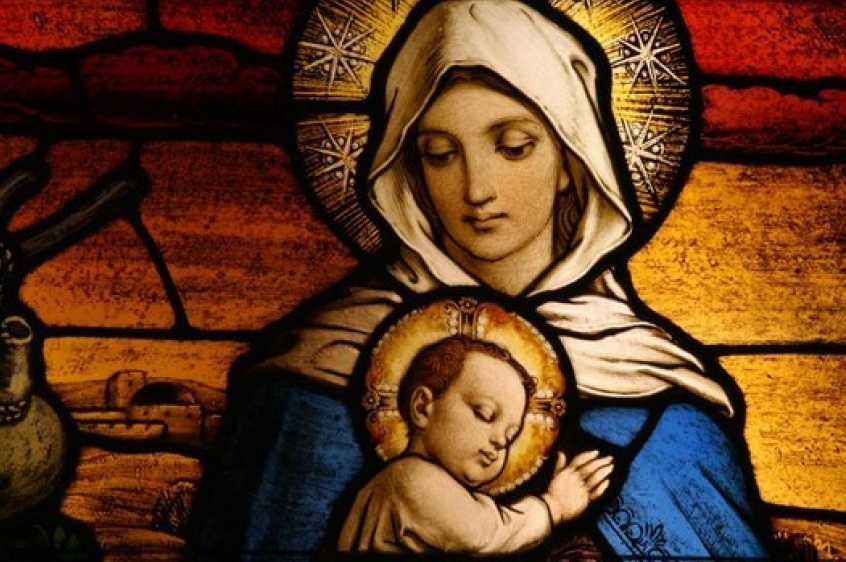
Was Mary a virgin?
You might think there was little more certain than the idea that Mary, the mother of Jesus, was a virgin. 'The virgin Mary' appears in carols, creeds, and of course the Bible.
Or does she? Some have suggested, looking at Scripture, that Mary was not a virgin, nor did she need to be. They argue that Matthew isn't really clear about it and that Mark and John don't mention it (which is true) and that it's not found in the rest of the New Testament. But doesn't Matthew teach a virgin birth?
Matthew, writing of Jesus' birth, quotes Isaiah's prophecy: "All this took place to fulfill what the Lord had said through the prophet: 'The virgin will conceive and give birth to a son, and they will call him Immanuel' (which means 'God with us')" (Matthew 1:23, quoting Isaiah 7.14).
Matthew writes in Greek and the word he uses for virgin is parthenos, which does, according to Strong's concordance, means 'virgin' (though this has been contested by some). However, he is quoting Isaiah, which was written in Hebrew and in the Hebrew the word we translate as 'virgin' is almah, which can mean virgin, or simply 'young woman'.
So, the original prophecy as it was written in Hebrew doesn't necessitate that the Messiah would be born of a virgin, it could simply be prophesying that a child would be born to a young woman.
Did Matthew choose the Greek word for 'virgin' because he already knew the tradition that Mary was, or was he just using the Greek translation of the Hebrew Scriptures, where the word appears? We can't really know for sure. Luke's Gospel by comparison is quite clear that Mary was a virgin (she asks the angel how she can be pregnant "since I have not known a man" in Luke 1:34).
From a historical point of view, it seems more likely than not that the young unmarried Mary was a virgin – it would be more unusual if she wasn't. The question remains though, is it integral to the Christmas story?
Last Christmas Giles Fraser suggested in the Guardian that the notion of the virgin birth ran completely against the grain of Christianity, and suggested that for Jesus, purity was unimportant. Theologian Ian Paul disagreed completely, and suggested that the virgin birth was indeed central to the Christmas story.
Some argue that if Jesus' birth to a pure virgin Mary was so theologically important, you might expect to find it in one of Paul's many rich theological accounts (he simply refers to a 'woman' in Galatians 4:4), or perhaps in the writings of Peter, or the writer of Hebrews; since they don't mention Mary's virginity, the doctrine may not so essential as some have made it to be. On the other hand, it might just have been assumed, as something everyone knew. However, the Apostles' Creed (with Matthew and Luke) affirms Mary's virginity, and so the idea is enshrined in Christian liturgy and theology today.
Could God have brought a child into being through a young virgin woman? Of course he could. It would be miraculous, but God is good at doing that sort of thing – and Luke is clear that that's how it was. Orthodox tradition, and a plain reading of the text, is clear: Mary was a virgin, she bore a child, and it was a miracle.
The even bigger miracle of course, the real reason for the season, is that the child was God himself.













